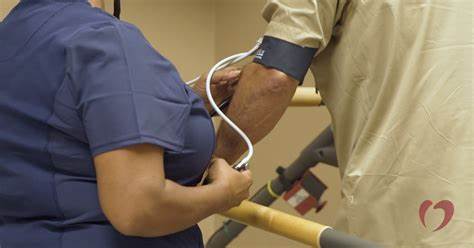Heart rate and blood pressure are indicators that measure how efficiently our bodies are functioning. These two can give you the idea that they are the same or related in a way because it has to deal with your heart.
That is not entirely true.
To some extent, they may be an indication of a common underlying health condition but that isn’t always the case. The fact that your heart rate is high doesn’t automatically translate into high blood pressure.
Let’s delve into this: Heart rate vs. blood pressure
Heart rate and blood pressure often increase or decrease together, but they don’t always rise and fall in sync.
For example, when faced with danger, both heart rate and blood pressure may increase at the same time. However, if your heart rate increases, it doesn’t necessarily mean your blood pressure will also increase.
If you’re dehydrated, bleeding, or have a severe infection, your blood pressure will usually decrease while your heart rate increases.
Read More: Heart Rate VS Blood Pressure
In some cases, heart rate can directly affect blood pressure. For example, if your heart rate becomes dangerously high, like during an arrhythmia, your blood pressure will often drop.
This is because the heart rate is too high for the heart to pump blood effectively. On the other hand, if you experience shock, which is when your blood pressure is dangerously low, your heart rate will usually increase to try to compensate and provide blood flow to your body.
Read Also: How to deal with sore muscles after an intense workout.
Blood pressure measures the force of blood against your artery walls, while heart rate measures how many times your heart beats per minute. When heart rate and blood pressure move in opposite directions, it may indicate an underlying issue.
For example, high heart rate and low blood pressure can occur temporarily when blood pools in the veins of your legs and gut. This means less blood travels to your heart muscles, so your heart doesn’t have much to pump out. As a result, your nervous system will automatically increase your heart rate.
Can you have low blood pressure and high heart rate?

Yes, it’s common to experience low blood pressure and a high heart rate at the same time. This can be caused by several conditions, including Dehydration, Low blood sugar, Anxiety, and Changing positions.
When blood pressure is low, the heart has to work harder to pump enough oxygen-rich blood to the body’s organs, which can lead to a higher heart rate. This is called hypotension and tachycardia, where hypotension is low blood pressure (below 90/60 mmHg) and tachycardia is a rapid heart rate (above 100 beats per minute).
Read Also: Smart Watches and Their Role in Fitness and Healthy Lifestyle
A combination of low blood pressure and a high heart rate can be dangerous and indicate that the body isn’t getting enough oxygen. This can put the body at risk for shock, which requires immediate medical attention. Signs of shock include cold and sweaty skin, rapid breathing, blue skin tone, and weak and rapid pulse.




One thought on “Heart rate vs. blood pressure; How they relate to your health.”
Comments are closed.